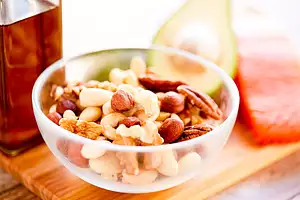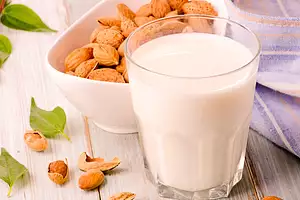What comes out of us can tell a lot about our overall health. This is especially true when it comes to poop. Our gut bacteria is critical to our overall health, and the microbiomes that are present in the intestines can be related to many health conditions, from skin problems, to anxiety, to weight gain.
George Weinstock, Ph.D., of the Jackson Laboratory for Genomic Medicine, explains that the 100 trillion microbiomes that are contained within your gut help to create your whole person. There are about 10 microbiomes for every cell in your body.
Although you are definitely in charge of what you put into your body, the microbiomes are responsible for what happens to it. They provide some defense against certain infections and pathogen invasions, and will trigger your immune system to ramp up when more antibodies are required. Weinstock states, “Every part of your body has a symbiotic relationship with your microorganisms.”
The more diversity you have in your microbiomes, the better they can control and protect your body, and the risk of chronic health conditions decreases. These conditions range from depression, type 1 diabetes, obesity, and certain types of cancer.
A study published in 2014 in the Proceedings of the National Academy of Sciences reported that the average microbiome population of American adults is about 30% less diverse than the levels our ancestors had, or people in less well-developed countries. This can be partially attributed to a high amount of processed foods and the overprescription of antibiotics that interfere with the good bacteria found in the gut.
Although microbiomes are not yet fully understood, scientists continue to learn more about them consistently. There are several ways that you can improve the diversity of your gut bacteria, here are some great tips.
1. Increase your fibre.
The bacteria in your gut love fibre. New York University researchers found a correlation between increased fibre intake and a greater abundance of actinobacteria (bacteria which produce natural antibiotics) and clostridia (linked to a lowered risk of colorectal cancer). Increasing the average amount of fibre intake per day from 14g to nearly 50g, which is about 3 cups of black beans, can get you to the right point.
2. Get physical.
Research has shown that working out can boost your microbiome balance. Many male professional athletes have very diverse gut bacteria, as well as reduced inflammation in the body, as compared to men who are mainly sedentary. This information was published in the journal Gut. Scientists are not exactly sure what the cause of this may be, but eating more protein and working out harder might be clues.
3. Increase whole grains.
While many people seemed to have hopped on board to the Paleo train, avoiding carbs like the plague may not be the answer to a healthy gut. A recent study conducted at the University of Nebraska found that those adults who ate more than 60g of whole grain cereals daily showed significantly better metabolism, immune function, and microbial diversity. Fibre does play a role in that improvement, but whole grains also offer extra anti-inflammatory benefits.
4. Avoid overdoing antibiotics.
Many of today’s antibiotics are considered to be “broad spectrum.” This means that they destroy all types of bacteria, even the good kinds. After 3 days on antibiotics, some scientists believe it can take up to 4 years to reach the original balance of micobiomes. Sometimes you might not be able to avoid antibiotics, but make sure you ask your doctor for the safest option.
5. Load up on coffee.
Because coffee tends to have a laxative effect, it can help make positive things happen in your digestive tract. Drinking three cups of coffee per day has been shown to boost your levels of bifidobacterium in your gut.
Managing the microbes in your gut can help you maintain a healthy balance throughout your body. Healthy bacteria prevent bad bacteria from moving upward in your intestinal tract, and help to keep everything working properly.










Comments